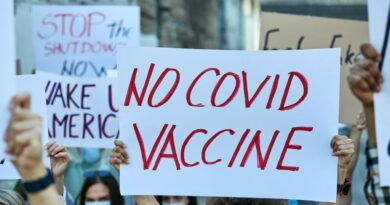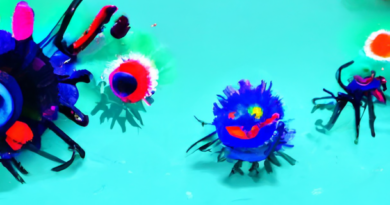VAX SECRECY: Some COVID-19 vaccine sites are keeping their locations secret until patients make an appointment

Public distrust regarding the COVID-19 vaccine is already quite high, and the way that some areas are handling the vaccine’s administration is not doing much to quell fears. Some vaccination sites are being very secretive about their location, only providing their address to people who have appointments. In some cases, they are not revealing where they are until just 15 minutes ahead of patients’ appointments.
CBS 13 Sacramento recently reported that UC Davis Student Health Services is keeping the location of some of its vaccination sites a secret as demand outstrips supply. Dr. Cindy Schorzman, who works for the health services, said: “We say we have your dose ready, get here within 15 minutes.” That doesn’t give recipients much time to prepare, but perhaps they are worried that too much time for reflection may give people second thoughts about moving forward with the risky vaccine.
Sutter Health System is only revealing the addresses of its three vaccination clinics in Sacramento Valley to people who have appointments. Nevertheless, they say they still have to turn people away who try to drop in without an appointment.
Dr. Schorzman told reporters: “We do have security on-site and we’re appreciative of them for anyone who has difficulty understanding the tier system and is really insistent.”
Convincing people to get the vaccine won’t be easy
Of course, not everyone is willing to get this vaccine, with more than half of Americans saying that they either want to wait and see how the vaccine performs and what kind of side effects people experience before getting a vaccine of their own, or that they plan to refuse it altogether. In fact, it wouldn’t be surprising if stories like these are an attempt to get more people on board with the idea of vaccination by making it seem as though the COVID-19 vaccine is in such high demand that security guards are needed to turn people away and health systems are forced to keep their location secret because so many people will be clamoring for the shot.
In a poll carried out by the nonprofit Kaiser Family Foundation, just 41 percent of the Americans surveyed said they were eager to receive their shots as quickly as possible. Thirty-one percent said they wished to wait to see further results from the vaccines, while 13 percent said they were not going to get the shot under any circumstances. Meanwhile, 7 percent said they would get the COVID-19 vaccine if they were absolutely required to do so – for example, if it was a prerequisite for keeping their job.
The study also explored the concerns of those reluctant to receive the vaccine. Sixty-eight percent of those who have not been vaccinated said they were worried about the potential long-term effects of the vaccine on their health, while 59 percent said that they were concerned about serious side effects from the vaccine. Meanwhile, 55 percent said they felt the vaccines are not as safe as authorities are claiming, while 53 percent doubt that they are as effective as they are said to be. Thirty-one percent worried that they may contract the disease itself from the vaccine.
Even those who say they are eager to get the jab and those who have already received at least one dose have also expressed concerns. Half of the people in these two groups have said they are at least somewhat concerned about the fact that the long-term effects of the vaccine are still unknown.
This widespread skepticism regarding the safety of a rushed vaccine with so many unknowns may make it challenging for the country to meet President Joe Biden’s target of giving 100 million Americans their first dose by April. It won’t be surprising to see more attempts to convince people that the vaccine is somehow desirable or that individuals will be doing something good for society by submitting to this risky experiment.
Sources for this article include:
*** This article has been archived for your research. The original version from Natural News can be found here ***


